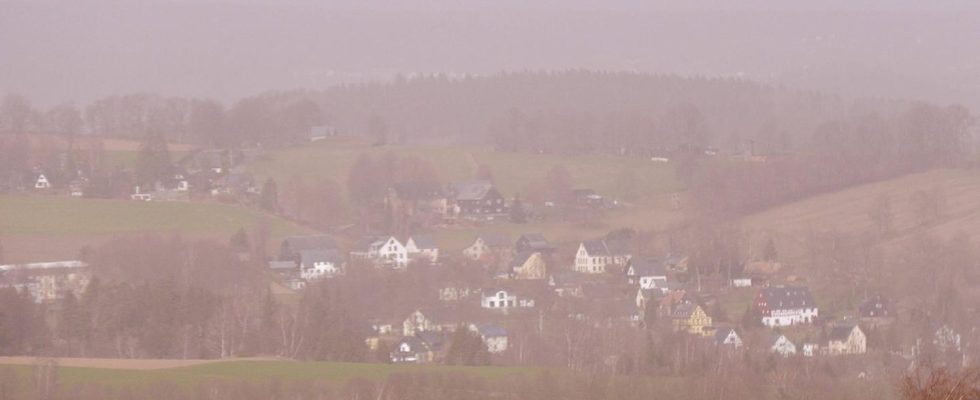“The Sahara dust has already arrived, which you can see from the yellowish cloudiness in the air,” said meteorologist Christian Herol from the German Weather Service (DWD). The phenomenon can be observed in many parts of Germany, but is most concentrated in the west of the country. The desert dust can make the sunshine appear milky and cloudy. The dust should still be visible on Easter Sunday. A cold front is expected to move it away on Monday, Herold said.
According to the DWD, Sahara dust in the air is not a rare natural phenomenon in Central Europe. The dust particles are carried to Europe around 5 to 15 times a year. “In terms of intensity, this is rather rare,” said DWD meteorologist Herold about the current outbreak.
Desert dust moved north over the Alps
A strong foehn storm swept over the Alps with violent gusts. Storm gusts with top speeds of 190 kilometers per hour were measured above Andermatt in Switzerland late in the evening, as the weather service SRF Meteo reported. In addition, there was reddish Sahara dust, which clouded visibility in large parts of Switzerland.
According to a meteorologist, model calculations indicate that 180,000 tons of Sahara dust are hanging in the air over Switzerland. That’s an unusual amount. Normally the wind brings half as much to Switzerland. The stormy weather is expected to last slightly until Easter Monday.
Due to the squalls, lifts in some Swiss ski areas had to be temporarily switched off. Already on Thursday, chair lifts in the Italian ski resort of Breuil-Cervinia opposite Zermatt began to sway dangerously, as a video from the private Italian weather service Il Meteo showed.
Kachelmann: “Föhn of the decade”
The meteorologist Jörg Kachelmann writes in an article for the Swiss Tamedia newspapers about the “Föhn of the decade”. Foothills could be felt as far away as the Swabian Alb in Baden-Württemberg. “This extreme event was made possible on the one hand by the large difference in air pressure between north and south, and on the other hand by the very high temperatures even outside the foehn, so that no heavy block of cold air had to be cleared away,” wrote Kachelmann.

